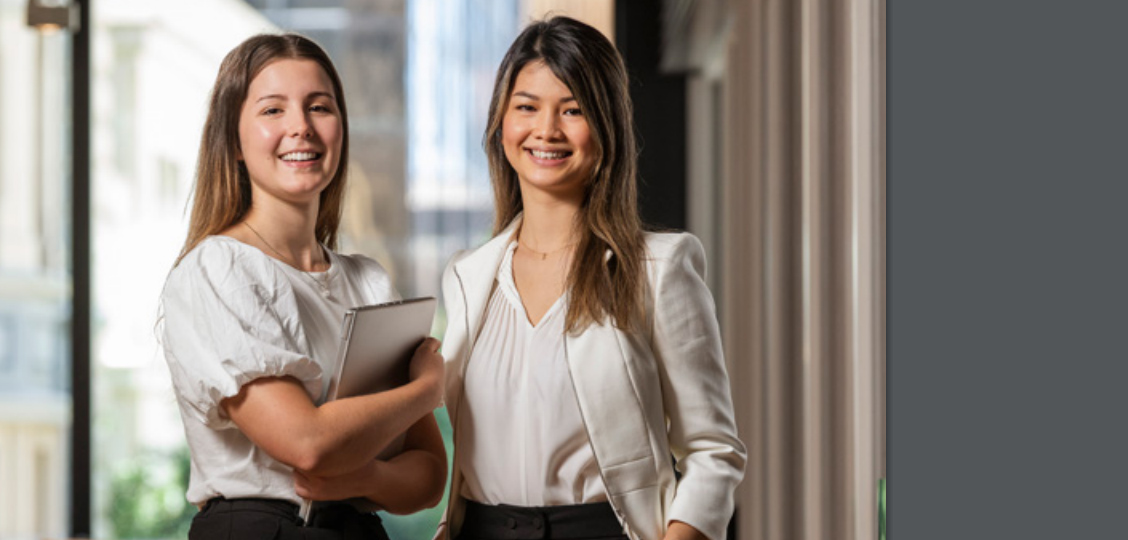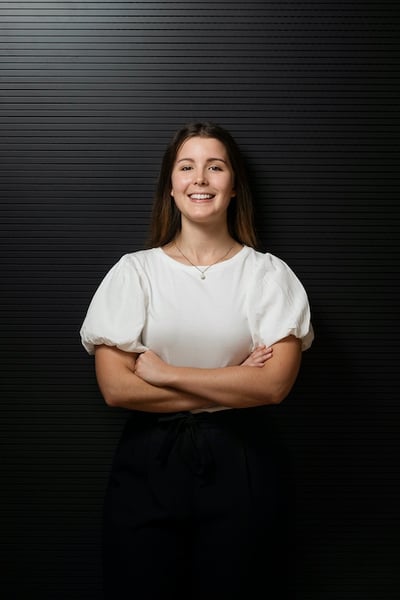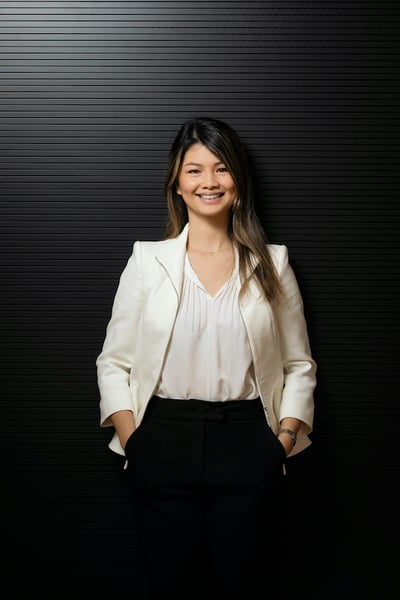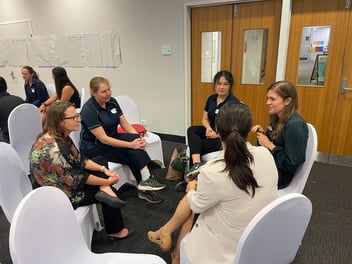Making the most of a water industry mentorship

A thirst for knowledge and the benefit of hindsight has helped two young water engineers forge a relationship with benefits that go both ways. Danika Smith and Rebecca Wong were paired up online during the 2020 COVID-19 restrictions and have since connected every fortnight to learn from each other.
Danika Smith, Graduate Water Engineer, Arup
I studied environmental engineering at UNSW, and I didn’t really go into it with the intention of becoming a water engineer, but I had a family friend who worked in the industry.
When I needed to get some experience on my resume, she kindly took me through her workplace to show me what it was all about. I got a taste for water engineering from that experience and did an internship with a small consultancy, where I worked on a project that looked at water-sensitive urban design.
Finding a mentor
I’ve been working with Arup for the past two years. I’m in the water team, and I really like the fact that we are providing a service for people and it’s one of those things that you can do all over the world.
I have a mentor through an internal program at Arup, and I intentionally picked someone who has no background in water. It was more to learn about how the company works.
But, last year, a friend of mine who had done the Australian Water Association (AWA) mentoring program recommended it and I thought it would be great to connect with someone who has worked in the water industry to learn more about it.
I wanted to deepen my understanding of areas of the industry that I’m not used to. It’s easy to work inside in a little bubble and understand what you need to do within it, but it can be hard to know what else is out there.
Rebecca and I were paired up for the program and, while she’s got a background in water, it’s been fascinating talking to her about how the skills can be used in other areas. She’s got a real leadership energy about her. She works at Deloitte and seems like she’s on top of everything, and yet she was willing to meet up with me every two weeks, which I thought was amazing because she is so busy. We had to hold our meetings online to begin with during COVID, but we’ve since met in person a few times.
Rebecca is very pragmatic, and she told me that a mentor–mentee relationship is a bit like dating, in the sense that someone can be a great person but might not be right for you.
The perfect fit
I think AWA did a great job in teaming us up, and Rebecca has given me one of the best pieces of career advice I’ve ever received — that it’s important to be able to say "no".
As a graduate, you often want to say yes to everything, which isn’t always possible. Rebecca taught me that you can still say yes, but you have to manage the expectations and indicate that what you can deliver may not be up to your usual standard. That way, the person asking you to do something can determine whether that’s good enough for them.
I think Rebecca and I are similar in a few ways. We are both career-oriented and, as young women in a male-dominated industry, we’ve had some similar experiences.
Another great lesson Rebecca has taught me is how to avoid being expected to be the note-taker in meetings. I was interested in learning about project management and the advice I got from a colleague was to come along and take the notes and minutes during meetings. Rebecca has really helped me to work out how to navigate that expectation and avoid being stereotyped as the admin person.
I’ve gotten a lot out of the program so far and I’d like to do it again. It’s such a good way to learn about the industry and how to build your career from someone who is willing to share their experiences and their knowledge. Once I have some more experience behind me, I would definitely like to offer my services as a mentor.
Rebecca Wong, Manager — Infrastructure Advisory and Contestability, Deloitte
I’ve had so many good mentors throughout my career and I’ve always wanted to give something back. That’s the main reason I joined AWA’s mentor program. I think it’s really helpful to have someone impartial to talk to, who understands what you’re going through at work and can give you advice about how to handle different situations. It’s much harder to try to figure everything out on your own.
A helping hand
Danika is great. She is super high-energy and proactive with a very positive attitude. She definitely has a huge drive to learn and improve, and move up the career ladder. She’s also very diligent. Every time we catch up, I feel like she has a million questions ready for me, which is great. I find it quite motivating, actually, that she finds what I have to say helpful.
It’s interesting talking to someone like Danika who is just starting out in her career — we’ve talked about lots of things I’ve learnt along the way.
One example I gave her was how to contribute and add value at meetings rather than being seen as a notetaker. With the benefit of hindsight, there are definitely instances where I could have contributed towards project discussions and asked those difficult questions.
I think having a bit of experience working with the water industry has helped me understand the nature of Danika’s work but because I now work in a different area, I can advise her a bit differently. I studied civil engineering and commerce at UNSW, and our conversations have mainly been around how to handle different scenarios and situations. I can apply some of my experience to Danika’s work, even if it is in a different environment. I think it has been useful to explain how skills can translate across industries, and Danika is interested in learning about that.
Learning from each other
We keep the sessions quite fluid, but Danika comes with her research and she is quite prepared, which has also really helped me. I don’t think I’ve told her this yet, but it makes me want to be a better mentee to the mentors I have. I see the value of being a bit more organised when I have my conversations with my mentors these days, and bring them more details in terms of what my day-to-day looks like and ask advice on how to handle some difficult situations. So I’ve definitely found it valuable. I’m learning from Danika at the same time as she may be learning from me.
I’ve also really liked how the whole program has been run. Considering that it started in a virtual environment for us during COVID restrictions, the program has done a really good job in setting everyone up together, and then following up with monthly emails and suggesting topics we could talk about. I’d recommend it to anyone.
This article was originally published in the 2021 edition of Current as "Learning from and leaning on others".



